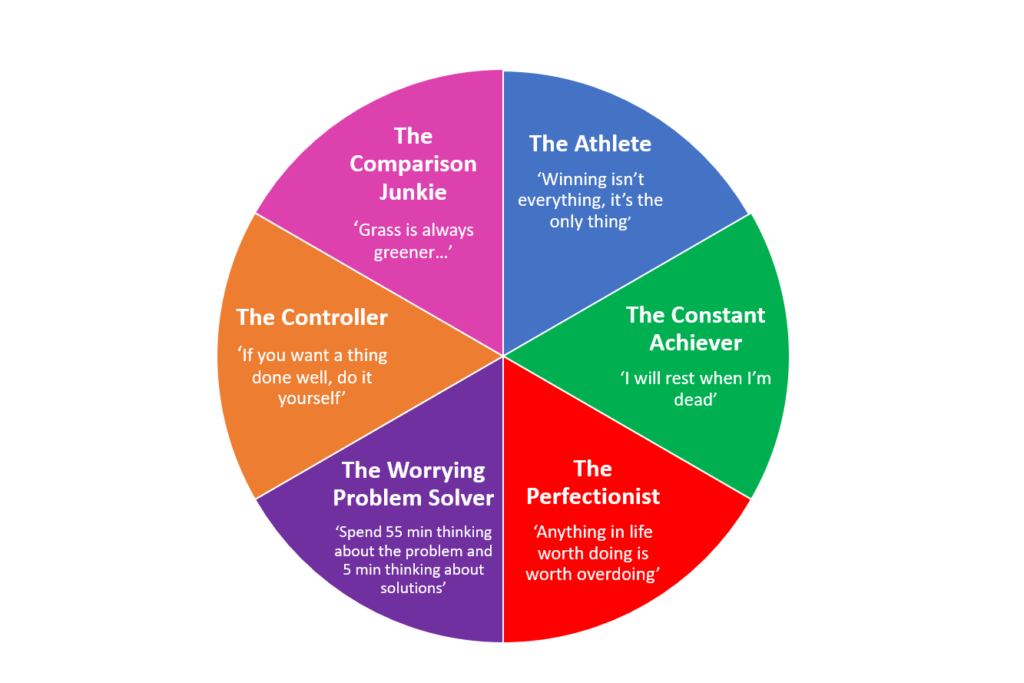‘Spend 55 minutes thinking about the problem and 5 minutes thinking about solutions’
This achievement strategy is about never leaving anything unresolved. If you identify as worrying problem solver you often experience anxiety and negative stress when facing a challenging problem.
On top of the anxiety the issue with this approach is that it’s very ineffective. When the brain’s threat system is switched on you are unlikely to find constructive solutions.
The result is a behavior that is motivated by getting rid of discomfort. In the short term, it feels better to dwell on the problem than to leave it.
Drivers and Fears:
-
-
- The dopamine kick of solving things.
- Inability to deal with the discomfort of disappointment.
- A tendency to catastrophize.
- Fear of failure.
-
How to overcome:
1.Recognize the difference between worrying and productive problem solving. Here are some signs that you might be worrying:
-
-
- You dismiss all your solutions as ineffective.
- You are tense, distressed, and upset.
- You spend a lot of time focusing on how things could go terribly wrong.
-
2. To get out of worrying-mode. Try taking some slow breaths from your diaphragm and relax. If that doesn’t help, take a break (go for a run, Clean the toilet). Come back to the problem when you’ve had a chance to settle down.
3. Put negative thoughts into a drawer. If you still find yourself slipping into negative thinking. Let the thoughts come, then mentally put them into a drawer, lock it and tell yourself you can open the draw again in an hour. In the meanwhile focus on positive ways to solve the problem.
Have you experienced periods of worrying and anxiety? What tips would you give to someone who is a worrying problem solver?


